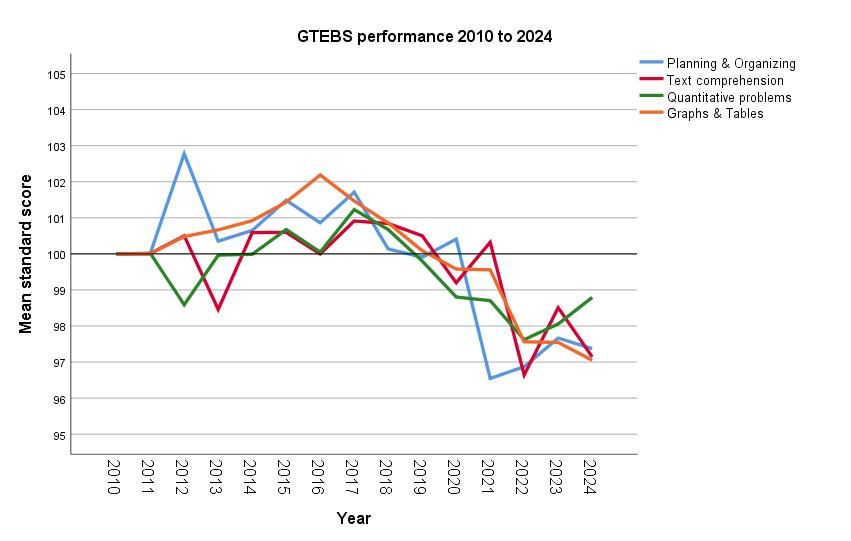Are today’s students less prepared for academic challenges than those a decade ago? We analysed data from 21,722 applicants for master’s programs who took the Graduate Test for Economics, Business, and Social Sciences (GTEBS) between 2011 and 2024—and found a notable trend:
- Test scores have declined by 0.3 standard deviations since around 2019.
- Bachelor and high school grades, however, have not shown a similar decline in our sample.
This raises important questions: Are we witnessing a decline in cognitive performance, and is grade inflation making students’ academic records appear stronger than they actually are? Could the effects be related to the pandemic or extensive social media use?
To better understand this trend, we still investigate several potential explanations, including:
✅ Changes in applicant demographics (e.g., program preferences, international students)
✅ Shifts in program competitiveness
✅ Language effects (e.g., more non-native speakers)
✅ Changes in test delivery (e.g., online proctoring since 2020)
These findings suggest that broader trends—such as a negative Flynn effect (a reversal of historical IQ gains) or grade inflation due to demographic and institutional changes—may be at play.
What does this mean for Higher Education admissions? If grades alone do not fully reflect academic ability, aptitude tests may play an increasingly important role in identifying qualified students.



